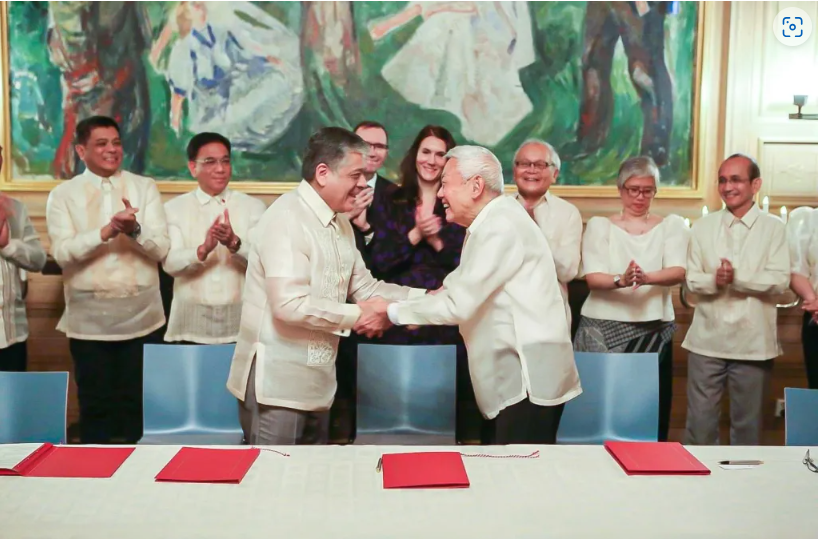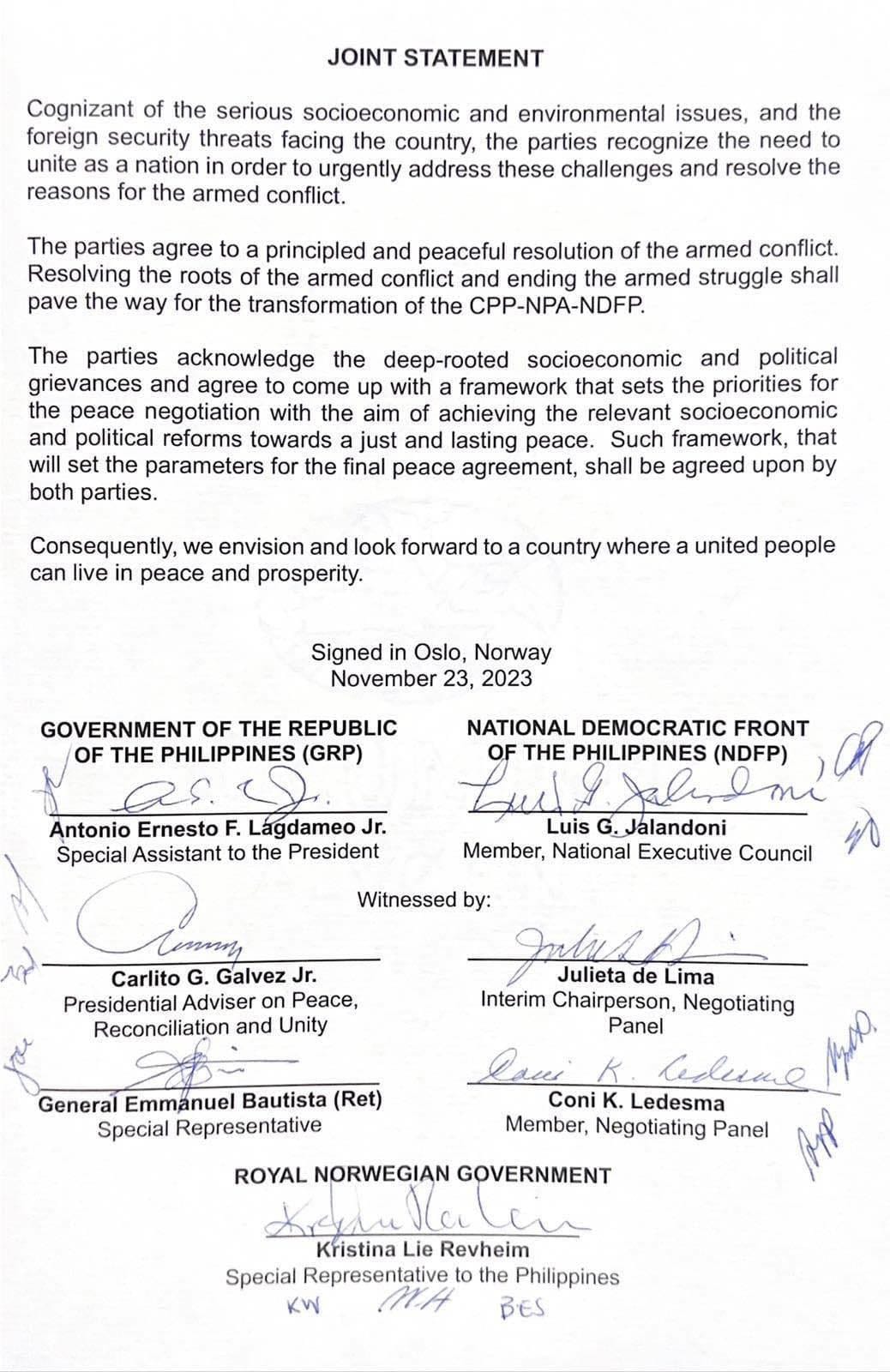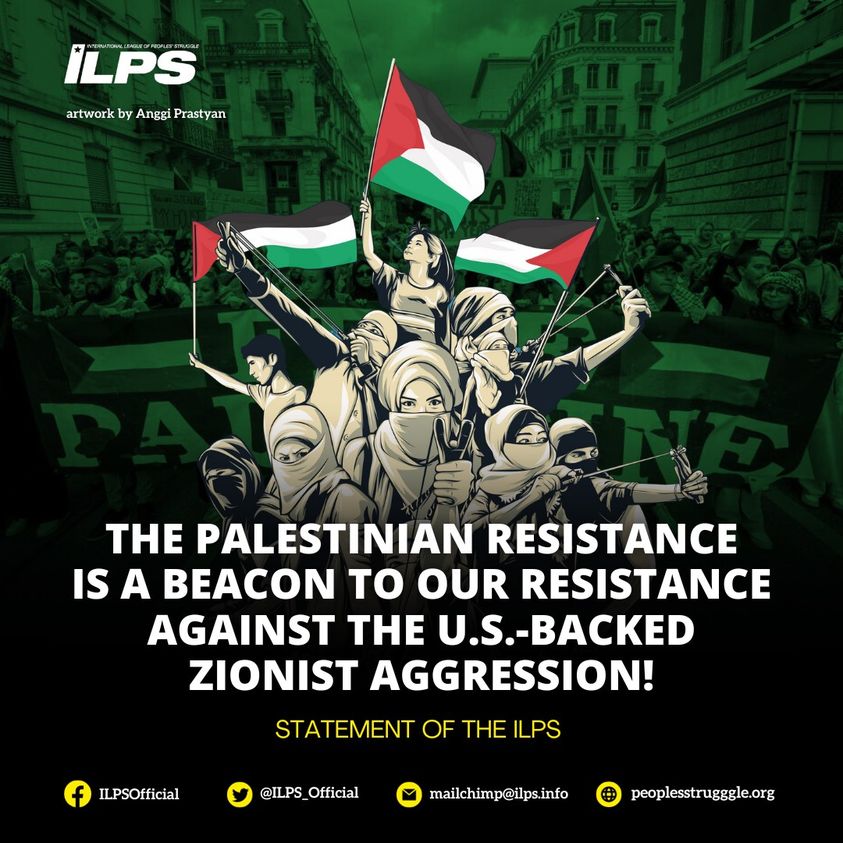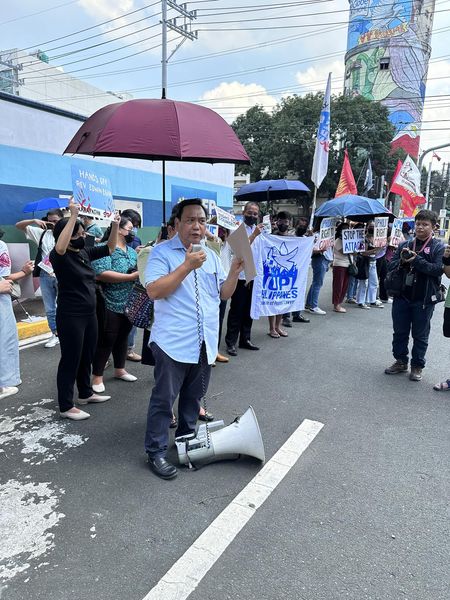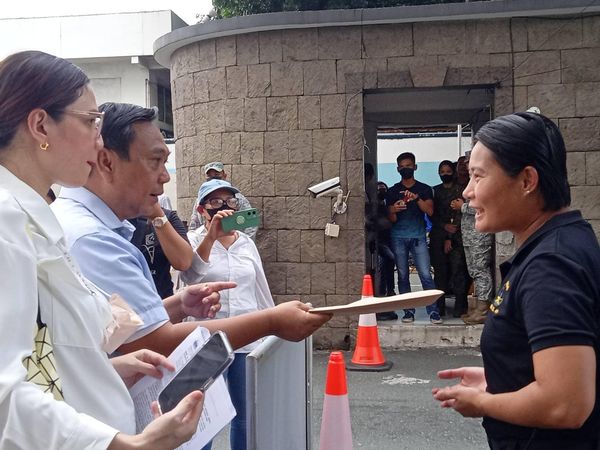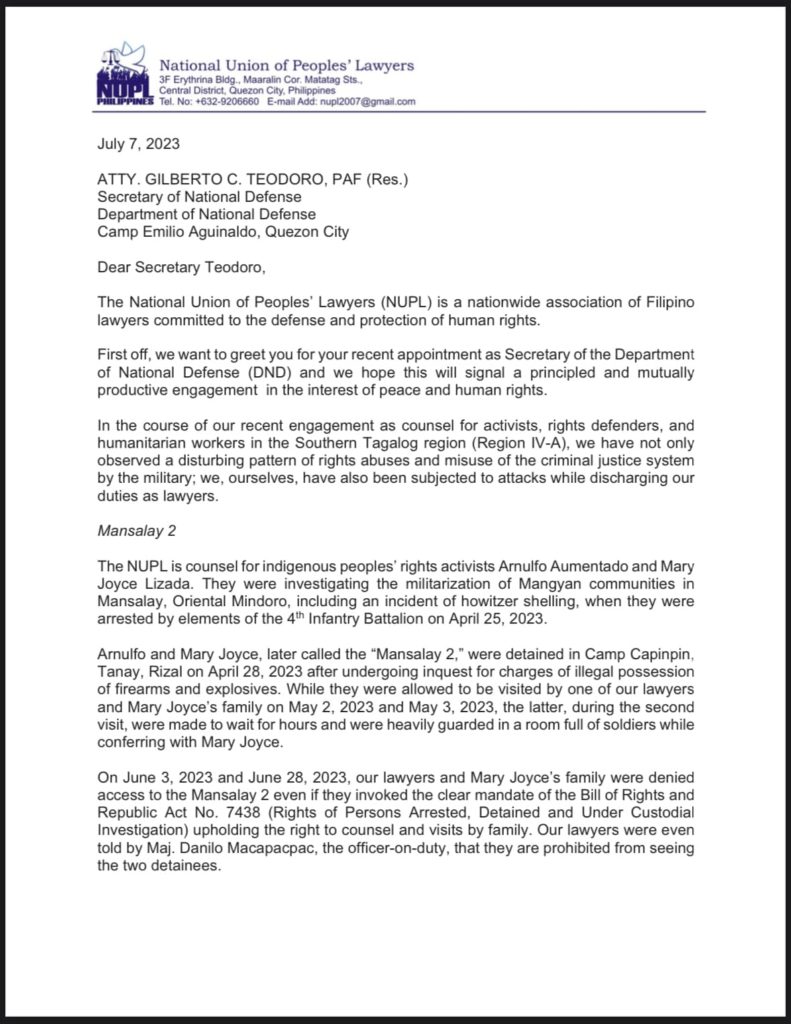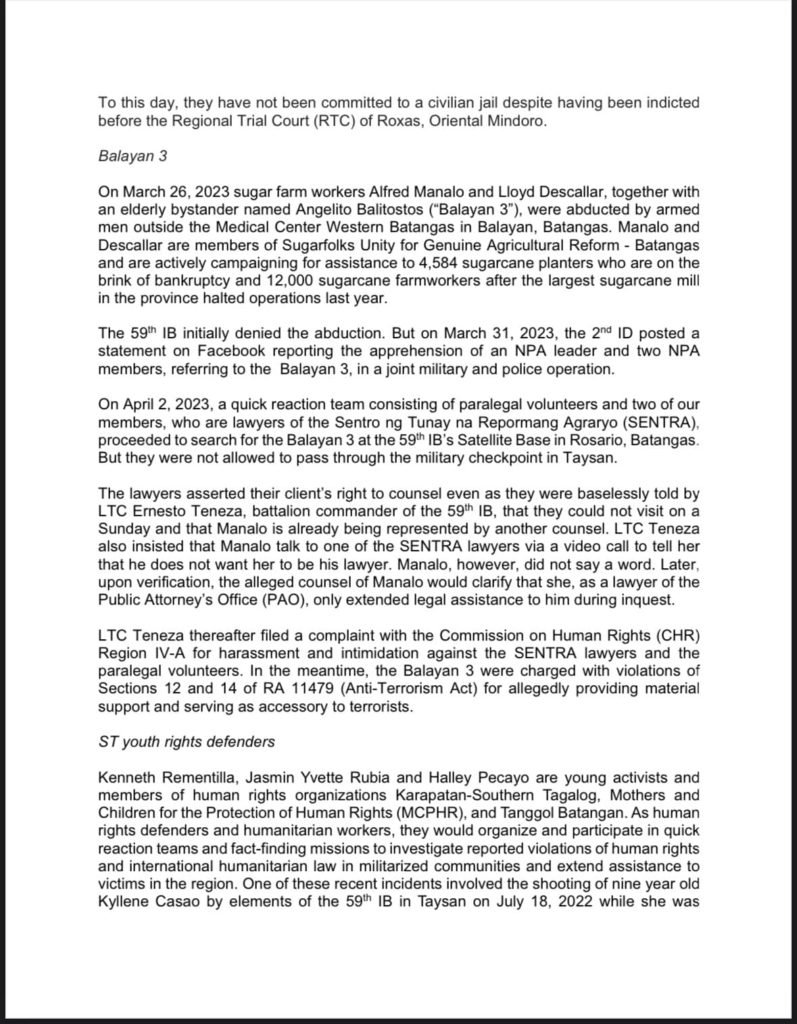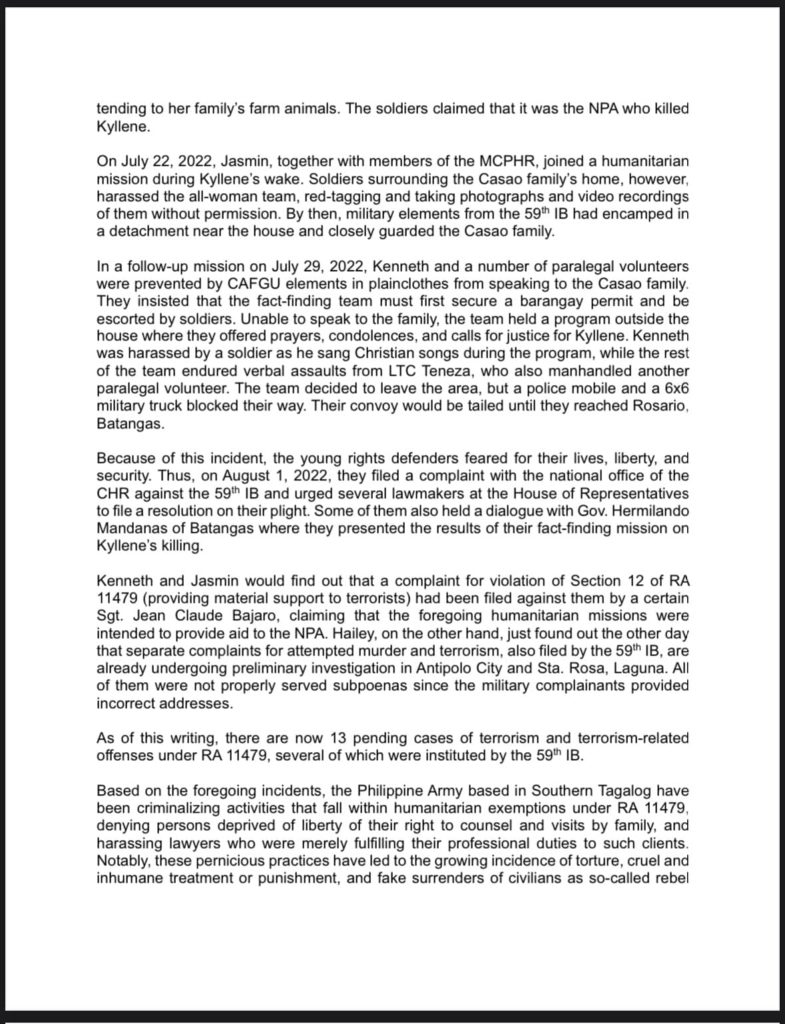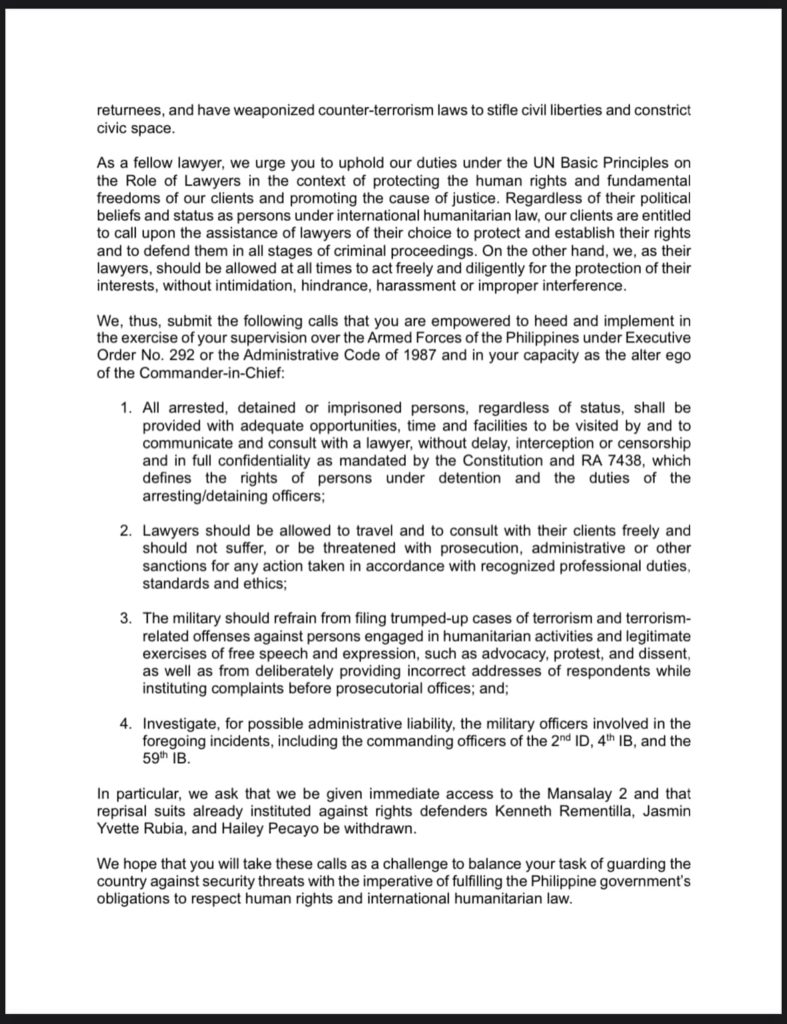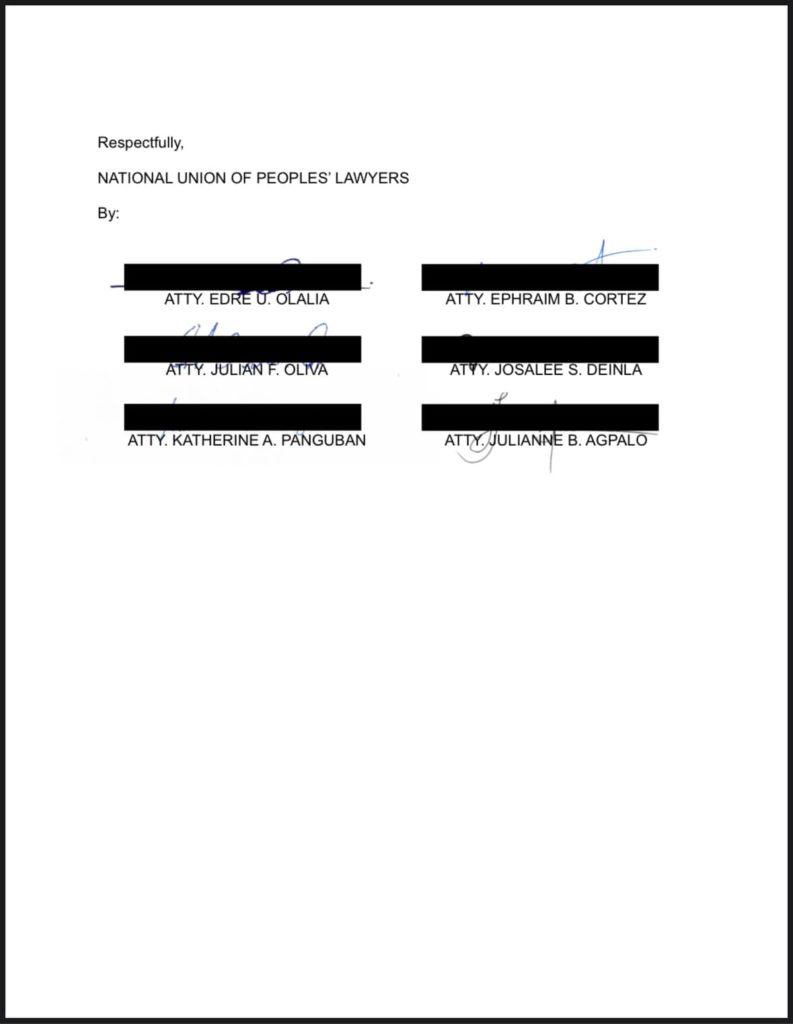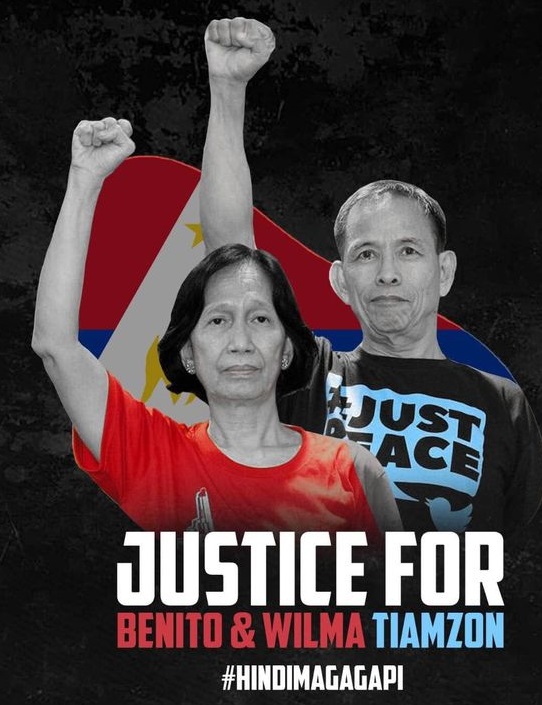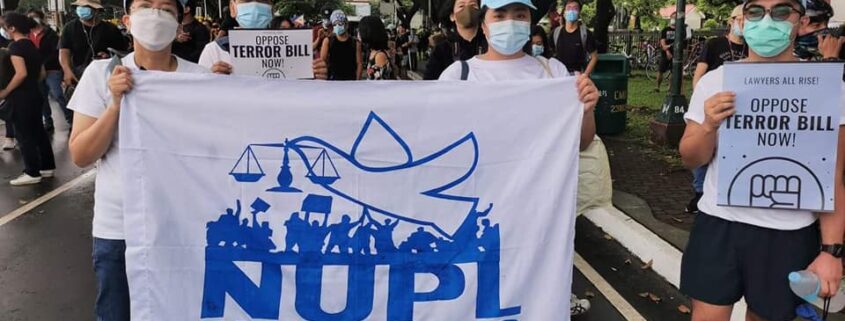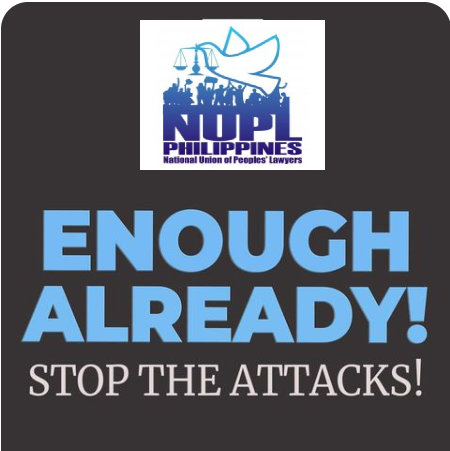

July 6, 2024
by IBON Foundation
The United States’ (US) extensive overseas military engagements since World War II have resulted in millions of deaths worldwide. Since 1945, the US has used its global network of bases and military agreements to invade or intervene in 96 countries. These operations started during the so-called Cold War, as the US sought to prevent communist expansion, and continue today under a self-declared War on Terror.
The US deploys its military forces under various pretexts including peacekeeping, humanitarian intervention, enforcement of international law, democratization, alliance-building, counterterrorism and ironically even preventing war. Its interventions range from direct military actions to covert operations to military support for client states. Lasting from days or weeks to over many years, these result in significant loss of life.
The first proxy war of the Cold War was in Greece from 1947-1950 when the US provided vast military support for the Greek government to prevent it from falling into the Soviet sphere of influence. This started decades of military intervention and assistance by the US to contain the spread of communist ideals and influence.
- Korea (1950-1953) – US forces joined South Korea in its war with North Korea, which was among the deadliest of the Cold War era.
- Vietnam, Laos and Cambodia (1955-1975) – US forces supported and eventually joined South Vietnam in its war against North Vietnam; this longest and deadliest conflict of the Cold War included massive bombing campaigns on Laos and Cambodia.
- Guatemala (1960-1996) – The US supported consecutive dictatorships with military and other assistance especially for its anti-communist operations.
- Indonesia (1958-1961) – The US supported Permesta rebels against the Sukarno government, and also backed the eventually successful Suharto coup.
- Cuba (1961) – The US supported the Bay of Pigs invasion which tried to overthrow the Cuban government.
- Colombia (1964-2013) – The US sent special operations forces and provided massive military assistance for counterinsurgency and later counter-narcotics operations.
- Dominican Republic (1965-1966) – The US invaded the Dominican Republic to ensure a reliable client state.
- Congo (1967) – The US supported the Mobutu regime with military hardware and munitions.
- Chile (1973) – The US supported the military coup to overthrow Salvador Allende and then also the dictatorship that followed.
- East Timor (1975-1999) – The US supported Indonesian invasion forces.
- Angola (1976-1992) – The US supported military resistance and coup attempts against the Leftist government.
- El Salvador (1979-1992) – The US supported the military dictatorship and its efforts against the Leftist insurgency.
- Nicaragua (1981-1988) – The US supported right-wing Contras to combat the Leftist Sandinista government.
- Grenada (1983) – The US invaded Grenada to ensure a reliable client state.
The US continued with its overseas military interventions even as the Cold War wound down:
- Libya (1986) – The US bombing of Libya was among its earliest attacks which used international terrorism as a justification.
- Iran (1987-1988) – The US fought naval and air battles against Iran, including shooting down a civilian airliner killing everyone on board.
- Panama (1989-1990) – The US invaded Panama to overthrow the government.
- Iraq (1990-2003) – The US launched air and ground offensives to expel Iraq from Kuwait during the Gulf War, followed by bombings and crippling economic sanctions on Iraq until 2003.
- Somalia (1992-1995) – The US invaded Somalia to secure its oil reserves for American corporations.
- Haiti (1994-1995) – The US invaded Haiti to reinstate an allied government overthrown by a coup.
- Yugoslavia (1993-1999) – Under the cover of North Atlantic Treaty Organization (NATO) operations, the US’s air combat and bombings in the former Yugoslavia were its first in Europe since World War Two.
In the 21st century, the US used its so-called war on terror to justify large-scale invasions, attacks and many other military interventions:
- Afghanistan (2001-2021) – The US invaded Afghanistan on the pretext of responding to the 9/11 terrorist attack and going after Al-Qaeda.
- Yemen (2002-2023) – The US sent special operations forces into Yemen and launched the first of hundreds of drone strikes against Al-Qaeda.
- Iraq (2003-2011; 2014-2021) – The US invaded Iraq on the pretext of going after weapons of mass destruction to overthrow the government of former ally Saddam Hussein; this was followed by air strikes and military support against the Islamic State of Iraq and Syria (ISIS).
- Pakistan (2001; 2004- 2018) – The US deployed troops for its invasion of Afghanistan and attacks on Al-Qaeda; it later also launched hundreds of drone strikes to support the government against rebel groups.
- Somalia (2007-2024) – The US conducts drone strikes, air strikes and ground operations against supposed terrorists.
- Libya (2011-2020) – Under the cover of NATO operations, the US conducted air, drone and artillery strikes to overthrow the Muammar al-Qaddafi government.
- Syria (2014-2021) – The US conducts drone strikes, air strikes and ground operations against ISIS.
- Ukraine (2022-present) – The US attempt to expand US influence to Russia’s borders by including Ukraine in NATO provoked Russia to invade Ukraine; it is fighting a proxy war with Russia through massive military support to Ukraine.
- Palestine (2023-present) – The US is the strongest supporter of Israel in its genocidal war on Palestine; Israel is already the largest cumulative recipient of US military aid which even increased three-fold in 2024 since the attacks on Gaza.
The US’ hostile military actions abroad violate the United Nations (UN) Charter’s provisions on peaceful settlement of disputes and refraining from the use of armed force except in self-defense after an armed attack by another state. None of the countries the US has invaded or attacked previously initiated hostilities against it. The US acts without Security Council approval when it wants to and also systematically violates many other UN resolutions and international law.
The most severe of the US’ acts of aggression have resulted in some 13-23 million deaths in at least 28 nations. Direct US military actions in at least 16 countries have caused around 7-13 million deaths. US-supported or -instigated armed conflicts in 19 countries have led to some 6-10 million deaths. There are countries where the US has engaged both directly in combat and indirectly through active military support.
These figures still do not include casualties from all the governments the US has supported militarily in their domestic conflicts against supposed insurgents and other political opposition. Many tens of thousands more have been killed by client states with US support and using US-funded and -supplied war materiel, such as in the Philippines.
These extensive casualties underscore the high human cost of the US’ militarist strategy for maintaining its global hegemony. Ensuring the political subservience of governments to conform with US geopolitical objectives and ensuring access to countries’ economic and natural resources are essential to this.
As it is, the Stockholm International Peace Research Institute (SIPRI) reports US military spending of US$916 billion in 2023 to be the largest in the world. This is over triple the next biggest spender China’s (US$296 billion), and more than that of the following 20 countries combined (Russia, India, Saudi Arabia, United Kingdom, Germany, Ukraine, France, Japan, South Korea, Italy, Australia, Poland, Israel, Canada, Spain, Brazil, Algeria, Netherlands, Taiwan and Turkey).
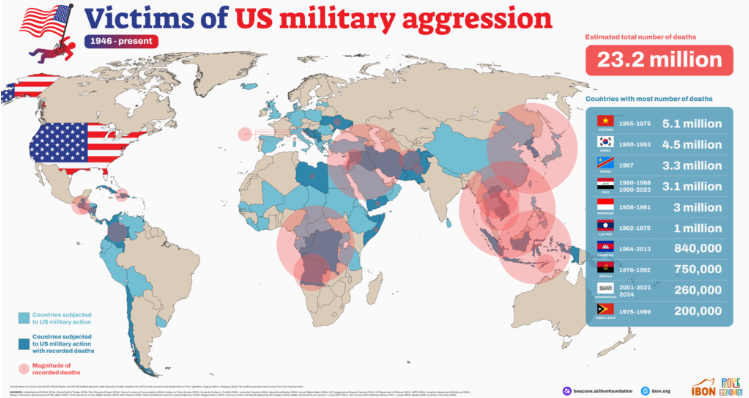
Sources: United Nations/OHCHA (2024), Global Conflict Tracker (2024), Zinn Education Project (2024), Center for Justice & Accountability (2024), Institute for Policy Studies (2024), Center for Civilians in Conflict (2024), Justice for Colombia (2024), Geopolitical Monitor (2024), Human Rights Watch (2024), US Congressional Research Service (2024), US Department of Defense (2024), SIPRI (2024), Jonathan Masters and Will Merrow (2024), Watson Institute for International and Public affairs (2023), China Society for Human Rights Studies (2023), Mark Clapson (2019), Colombia National Center for Historical Memory (2016), Margaret Alston (2015), American Archive of Public Broadcasting, Dan Vergano (2013), Gideon Polya (2013) and James A. Lucas (2007, 2013), John Tirman (2012), Matthew Weaver (2011), Lancet (2006), Medact (2002) and Noam Chomsky (1995)

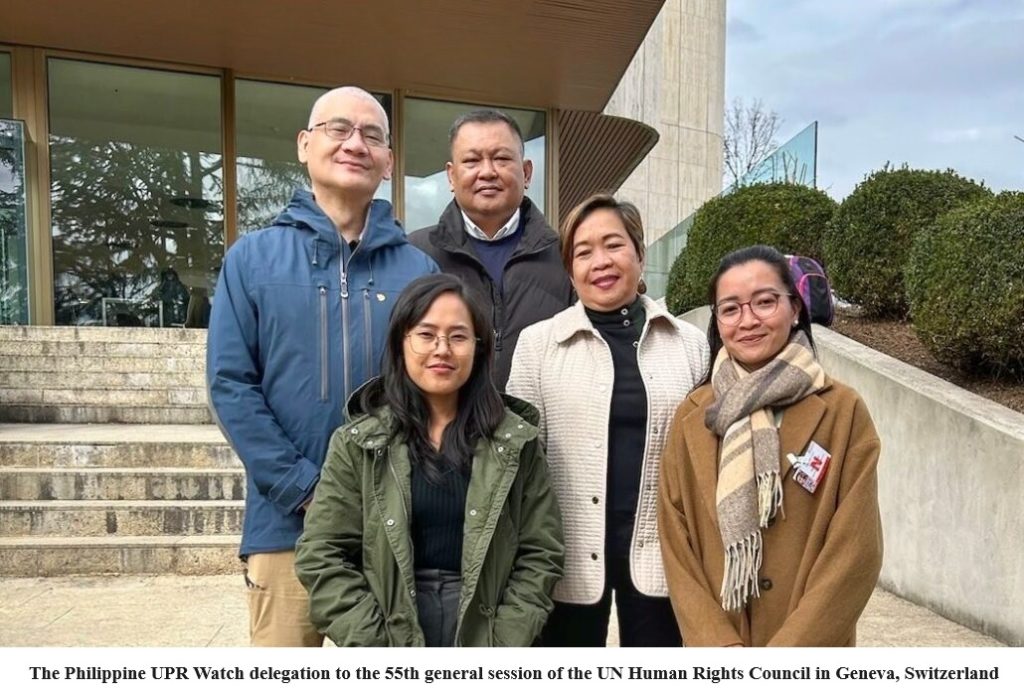
 IBON International
IBON International National Union of Peoples’ Lawyers
National Union of Peoples’ Lawyers